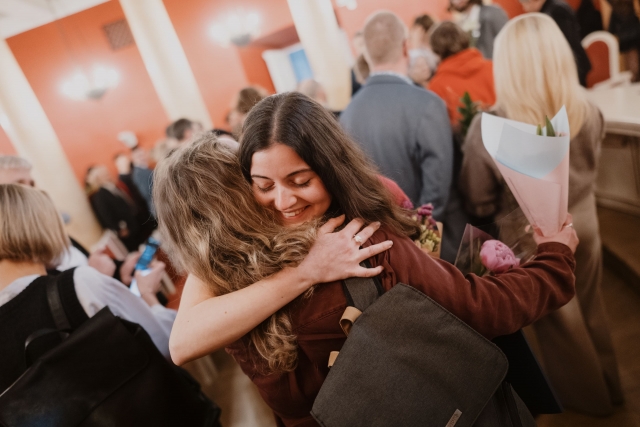A degree from Vilnius University will give you the skills and know-how you need to build a successful career. With our international programmes to choose from, you decide where to take your future.
Light Engineering
| Qualification awarded |
Bachelor in Technological Sciences |
| Field of study | Materials Technology |
| Faculty |
Faculty of Physics |
| Study area |
Technological Sciences |
| Length of the programme (years) |
4 years (8 semesters) |
| Scope of programme (ECTS) |
240 ECTS |
| Language of instruction |
English |
| Location |
Vilnius, Lithuania |
| Starting date |
1st September |
|
Annual tuition fee for EU students |
4108 Eur |
|
Annual tuition fee for Non-EU students |
4600 Eur |
Why study Light Engineering at Vilnius University?
Light Engineering is the programme with no close rivals at the neighbouring universities within the Baltic region. It combines a practice-oriented and shorter studies focused on light technologies, which is among the best developed and fastest growing high-tech fields in Lithuania. Most of Light Engineering courses are taught by leading Lithuanian professors and scientists that are active in this field.
Even more, the programme offers a unique possibility to learn the practical skills using the modern growth and characterization equipment available at the National Centre for Physical Sciences and Technology. Light Engineering graduates will acquire the professional competence to carry out the complex tasks requiring knowledge of semiconductor physics, new growth technologies, semiconductor optoelectronic devices, such us modern lasers, LEDs, OLEDs, solar cells, etc. They will learn the modern digital modelling techniques, and will be able to use the software for the process automation and control.
 This programme is really promising for both students and employers because of the wide diversity of skills it provides. It is nice that the programme allows the students to choose between the going deeper into one of specific optoelectronics field or gaining wider, but more basic all-around knowledge. The combination of practice and theory opens ways for both scientific and engineering work. The perspectives are high because Lithuania has a great light technology industry (especially lasers).
This programme is really promising for both students and employers because of the wide diversity of skills it provides. It is nice that the programme allows the students to choose between the going deeper into one of specific optoelectronics field or gaining wider, but more basic all-around knowledge. The combination of practice and theory opens ways for both scientific and engineering work. The perspectives are high because Lithuania has a great light technology industry (especially lasers).
Aikaterini-Maria Gkouzi, Alumna from Greece

I had to engage in research, which led me to spectroscopy. I reached out to a professor, who introduced me to his colleagues in a lab where I worked for the next two years. This hands-on experience was invaluable, allowing me to see research work first-hand rather than just imagining it like most students. More importantly, I had the privilege of working with people who valued my contributions, believed in me and my potential, and treated me with respect.
Marijus Ambrozas, PhD student from Lithuania
Admission requirements and selection criteria
- Matura (high school leaving) certificate.
- The selection criteria are based on the weighted average of relevant grades in mathematics, physics, native language and English (foreign) language.
- English language proficiency - the level not lower than B2 (following the Common European Framework of Reference for Languages (CEFR).
International mobility
Students can participate in ERASMUS+ mobility programme or use VU’s Bilateral cooperation agreements which give an opportunity to study at VU’s Partner Universities or do internship abroad.
Career opportunities
The graduates will acquire knowledge and competences allowing them to pursue a carrier in light technology industry in Lithuania or abroad, or to continue the university studies. Also, they will be able to continue their studies at Masters and PhD levels. The nearest postgraduate directions - laser physics and optical technology, laser technology, material science and semiconductor physics, Optoelectronic Materials and Technologies.
Academic contact:
Prof. Tadas Malinauskas
Admission contact:
Admission Office

